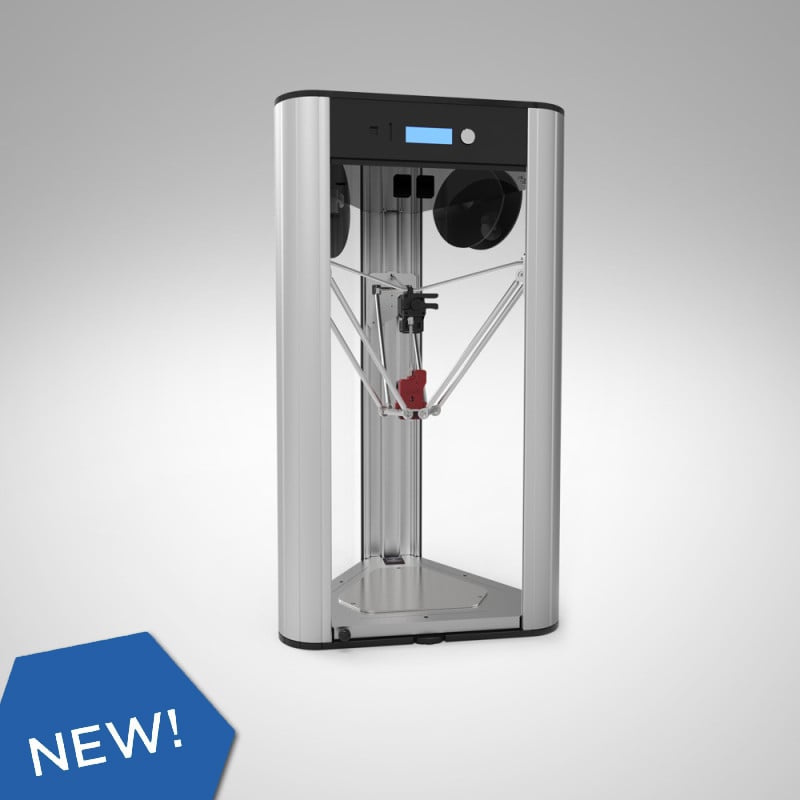
Italy-based WASP announced a new version of their flagship 3d printer, the DeltaWASP 20 40 Turbo2.
WASP has become very well known for their reliable – and sometimes overly large – delta-style 3D printers. They’ve developed equipment that can 3D print in a variety of unusual materials, including local clay, plastic pellets and other substances. But the new DeltaWASP 20 40 Turbo2 prints with typical 3D printing plastic filament, unless you select their clay-printing option.
WASP says the DeltaWASP 20 40 Turbo2 is “the fastest delta 3d printer in the world”, and that might be true. According to their specifications, this machine can 3D print at up to 500mm/second, which is a scarily fast speed. Of course, this is a theoretical limit that is likely achieved only momentarily during printing objects of particular geometries, but still it’s fast.
The machine, which prints within a 200mm diameter, 400mm tall cylindrical build volume (hence it’s name, “20 40”), accepts a wide variety of plastic filaments as it also includes a heated print surface that can hit temperatures as high as 120C. The hot end on the Turbo2 can achieve 350C, able to print many thermoplastics. WASP lists the following 1.75mm filament materials as suitable for this machine:
- PLA
- ABS
- PETG
- TPU
- ABS+PC
- Polypropylene
- Nylon
- Nylon+Carbon
It’s hard to see in the images, but this machine apparently also includes plexiglass sides, enabling capture of the heat from the print bed, and raising the ambient temperature within the build chamber. This should improve the quality of most prints, particularly those using warpy materials like ABS.
This is quite different from many delta-style machines, where there are no sides to capture heat. Typically covers are not included due the larger size of such delta machines. Indeed, even some of WASP’s much larger delta machines do not come equipped with side panels.
One interesting option I mentioned was the ability to print clay and other squishy materials. This is accomplished by ordering the machine with their “Spitfire Red Extruder”. This 0.4mm steel nozzle extrusion system is capable of handling a variety of ceramic-style materials, but I don’t believe it is foodsafe.
If you prefer plastic, WASP also offers the option of a dual system by selecting their ZEN Dual Extruder, which comes equipped with two 0.4mm steel nozzles. These operate in parallel and do not independently move. However, the presence of two nozzles means you should be able to 3D print objects using soluble support (in the “other” extruder), enabling far more complex parts to be produced.
The Turbo 2 is otherwise modest in its features, although it does include a small color LCD screen. Software is provided through the usual open source 3D print management packages.
The DeltaWASP 20 40 Turbo 2 is priced at €2,770 (USD$3,260) and the dual option is another €310 (USD$365).
Via WASP

